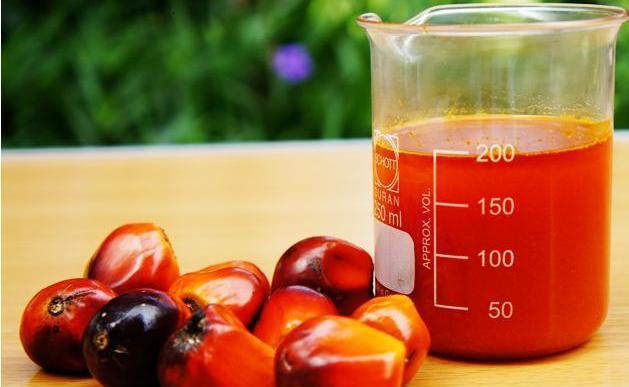Demand for local Palm Oil spike on the ban of 41 items

Nigeria’s ban on importers accessing foreign exchange for certain products is proving a boon for the country’s biggest palm-oil producer as it stokes demand for domestic goods.
Profit at Presco Plc, a Benin City-based manufacturer of the edible oil, more than doubled in the six months through June as sales jumped 60 percent to 7.5 billion naira ($24 million), according to results published in July.
The outlook for the next four years is a 10 per cent annual profit growth, Managing Director Felix Nwabuko told Bloomberg.“The policy is bringing a boost to us in the sense that people who would ordinarily have imported, using government foreign exchange, are not doing that anymore,’’ he said. It will be recalled that CBN stopped importers of 41 items, including palm-oil and textiles, from accessing official foreign-exchange markets in June 2015.
The measure was part of a plan to prop up the naira after it plunged against the dollar following a drop in the price of crude. Though the Organised Private Sector (OPS) has continued to kick against the policy, the CBN governor, Godwin Emefiele recently said that the policy is yielding positive results to the economy.
Speaking to newsmen in Peru at the end of the Annual Meeting of the International Monetary Fund (IMF) and World Bank, Emefiele said that as a result of the new policy, the bank regulator has been able to conserve some foreign currencies, with a lot of progress made on local production of the listed items. Emefiele clarified that at no time did the apex bank ban total importation of the said items, but only restrict access of foreign exchange from official markets to the importers.
“We didn’t ban the importation of anything. What we did was to restrict the foreign exchange to those items that we think we can produce competitively locally so as to improve our local industries due to the challenges we have, due to the fall in crude oil revenue.
Meanwhile, Presco also faces challenges from the dollar scarcity as it imports fertilizers, chemicals and equipment including spare parts for plants, to increase output. Obtaining foreign-exchange “is tough — some months you don’t get, sometimes you get a little bit of what you need,” Nwabuko, 61, said.
“Twenty per cent of our cost is foreign currency driven,” he said. The company, which operates 16,900 hectares (41,761 acres) of palm-oil plantations and sells its output locally, plans to increase the export of palm-kernel oil to Europe, mainly the Netherlands, to enable it access dollars and cushion the impact of the scarcity in Nigeria, Nwabuko said.
“Looking into the situation we are in now and into the future, it makes good business sense to do that.” Exports contributed 5 per cent of revenue from January to August and the company plans to increase palm-kernel crushing capacity to 100 tons daily by 2018, from 60 tons currently.
Presco doesn’t plan to export palm-oil as “it has enough market locally and price comparison-wise, there is no real advantage in exporting palm-oil out of Nigeria,” the MD said. The company plans to increase oil-palm plantation to 31,400 hectares by 2021 from 16,900 while it targets to raise palm-oil mills capacity to 120 tons per hour from 60 tons, Nwabuko said.
It will start work on a 500 tons per day palm-oil refinery and fractionation plant next year, which will be completed by 2018 to increase current capacity of 100 tons, he said. Nigeria’s demand for palm oil is greater than its output. It consumed 1,405,000 tons in 2013 while it produced 930,000 tons, according to data from the U.S. Department of Agriculture.
Despite the economic downturn, its population of 180 million remains an attraction for Presco, the MD said. “The demand for our products is there, whether for food or industrial use,’’ Nwabuko said, adding that the company supplies fats and oils to some of Nigeria’s biggest manufacturers including PZ Cussons Plc, Dangote Industries Ltd. and May & Baker Nigeria Plc.
Nigeria produced 930,000 tons of palm oil in 2013 and the forecast for the 2016- 2017 season is 970,000 tons, making it Africa’s largest producer and the world’s fifth, behind Indonesia, Malaysia, Thailand and Colombia, according to data from the USDA.









0 Comments